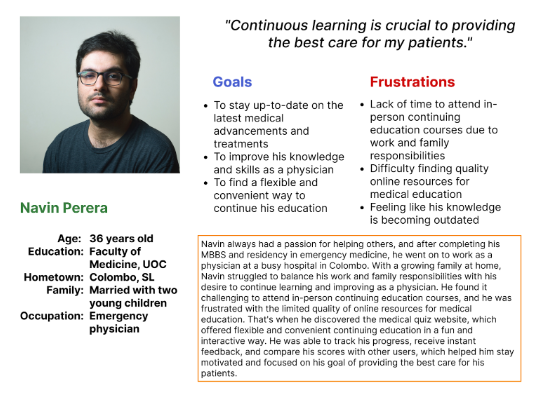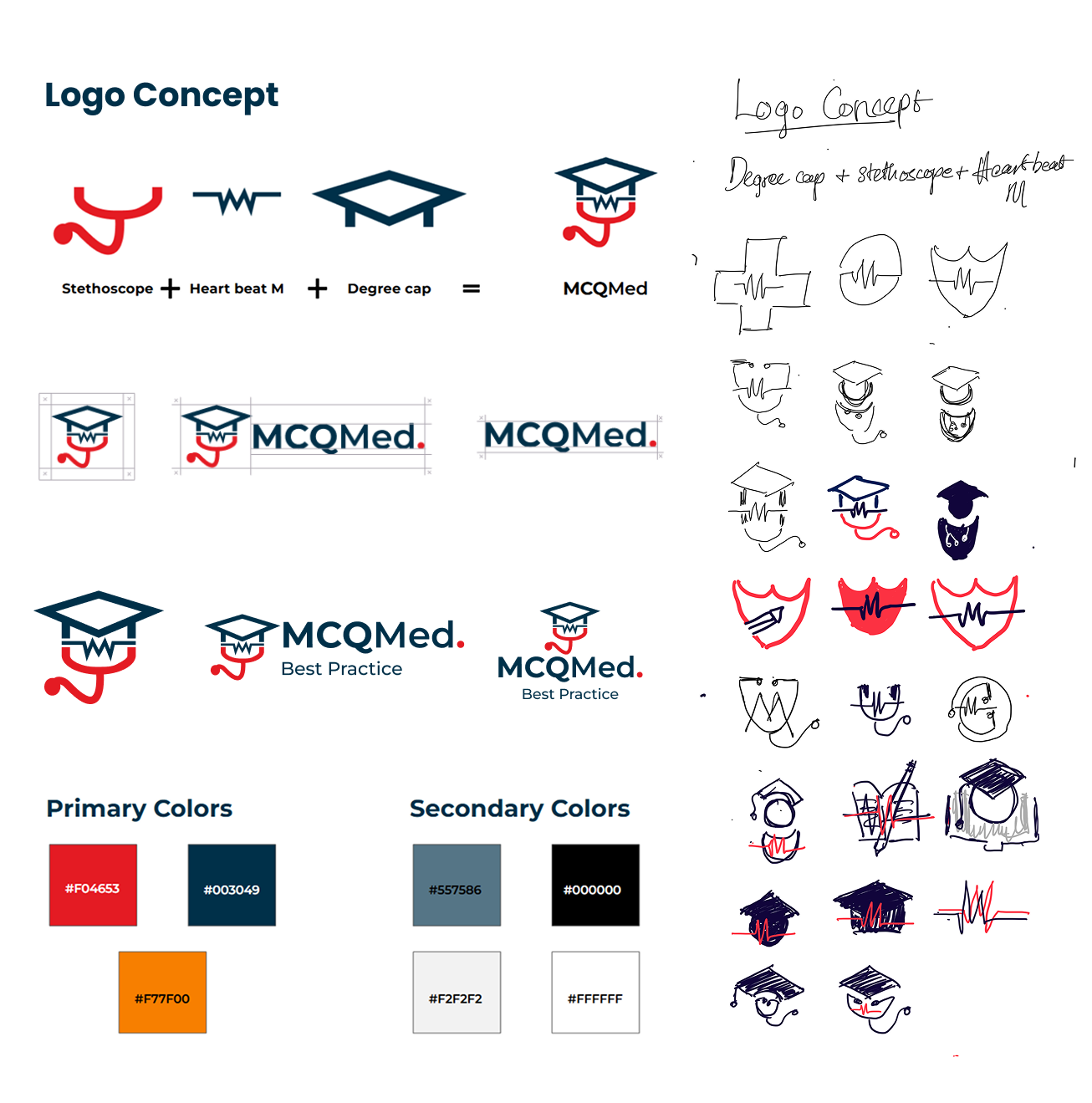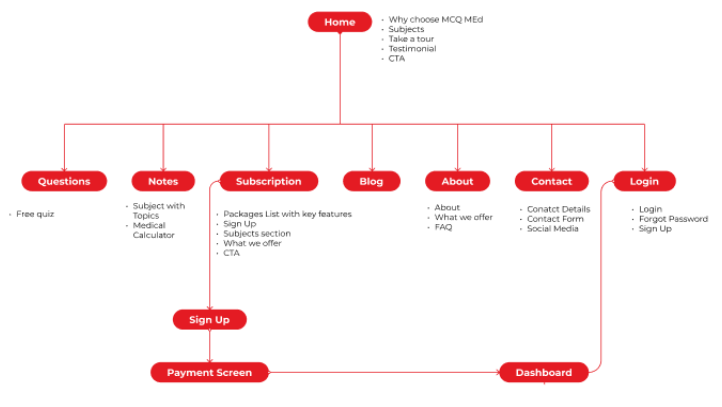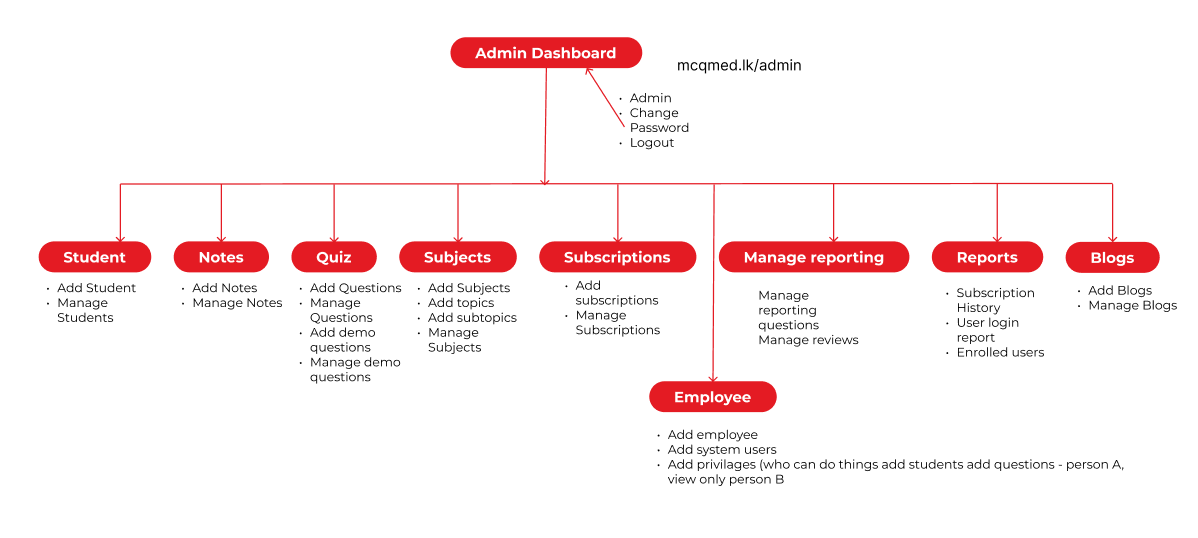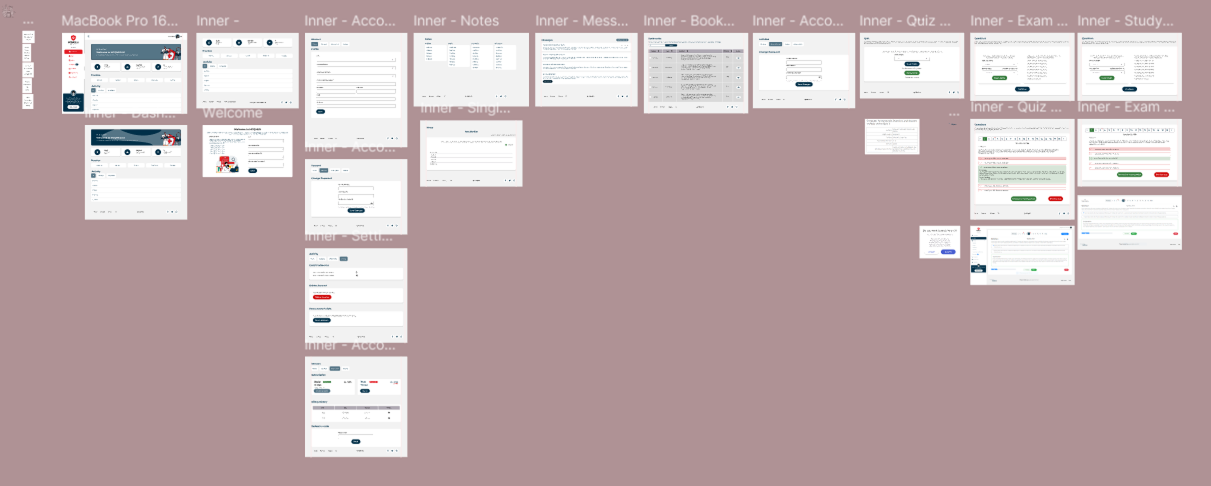Before designing MCQMED, our team conducted in-depth user research to understand the needs and pain points of healthcare professionals and medical students, who were our primary users. We organized focus group discussions and one-on-one interviews to gather meaningful insights into their study habits and challenges.
We discovered that users wanted not only a simple and efficient way to test their knowledge but also a more engaging and interactive experience that would help them retain information effectively.
Based on these findings, we designed features such as progress tracking, instant feedback, and score comparisons to enhance engagement and motivation. These insights guided the design of a platform tailored specifically to the target audience, resulting in a more effective and rewarding learning experience.
1. Lack of Engagement
The existing MCQMED platform felt unattractive and uninspiring, leading to low participation and poor knowledge retention. To solve this, the redesign introduced progress tracking, instant feedback, and score comparisons to make learning more interactive and motivating.
2. Ineffective Assessment
The platform failed to provide accurate and personalized assessments of users’ knowledge. To address this, customizable quizzes covering various medical topics were implemented, along with instant feedback to help learners understand their strengths and weaknesses.
3. Poor User Experience
Users found the interface confusing and difficult to navigate. The redesigned platform focused on clarity and usability by introducing a cleaner layout, logical information flow, and improved accessibility across devices.
4. Lack of Data and Insights
Administrators lacked visibility into user behavior and performance trends. To overcome this, an analytics dashboard was introduced, enabling administrators to monitor engagement, track usage, and evaluate the effectiveness of educational programs.



